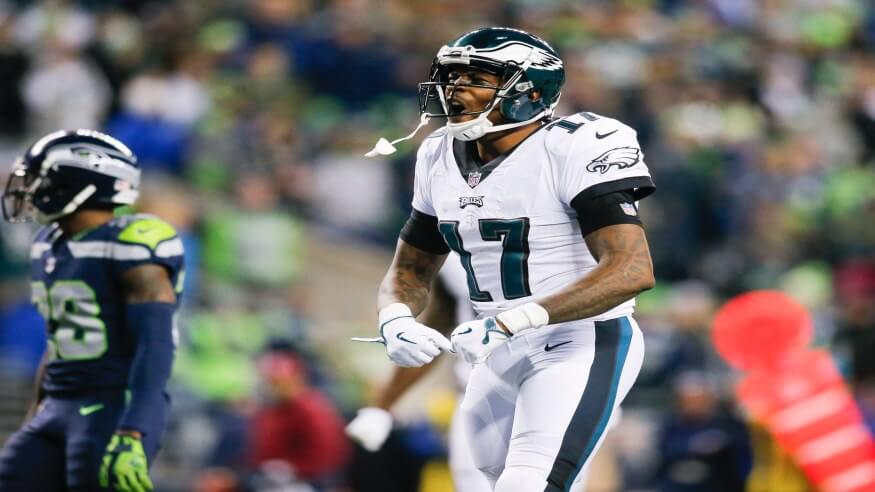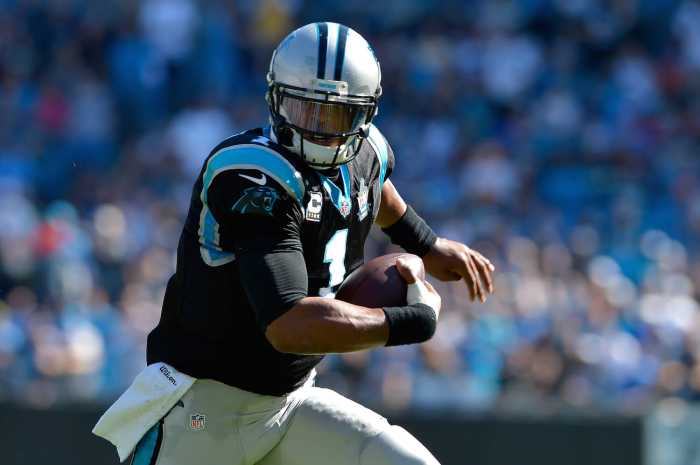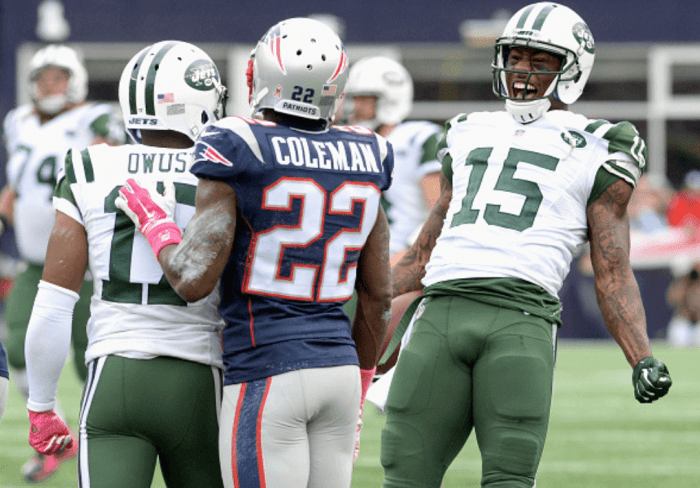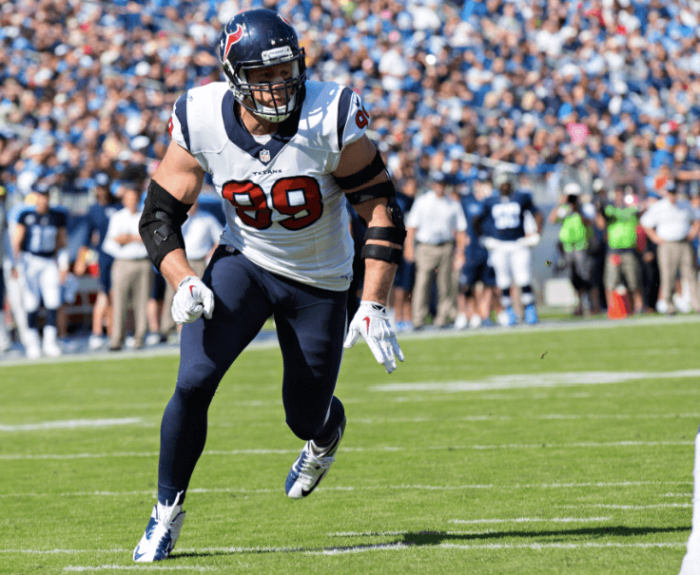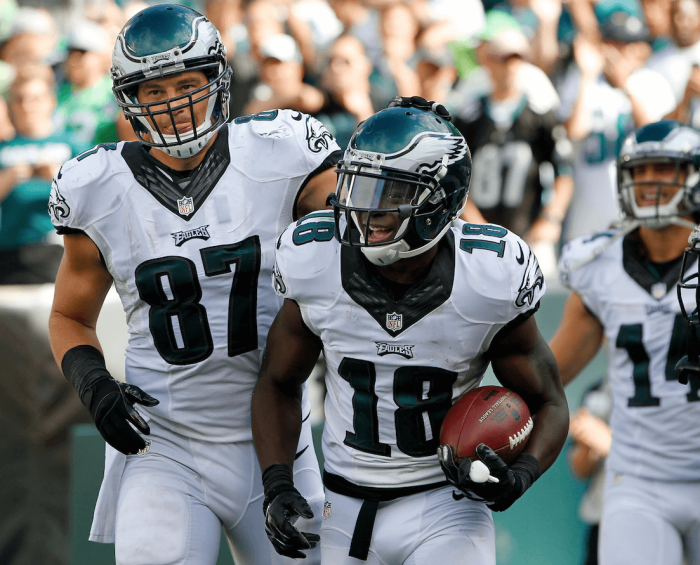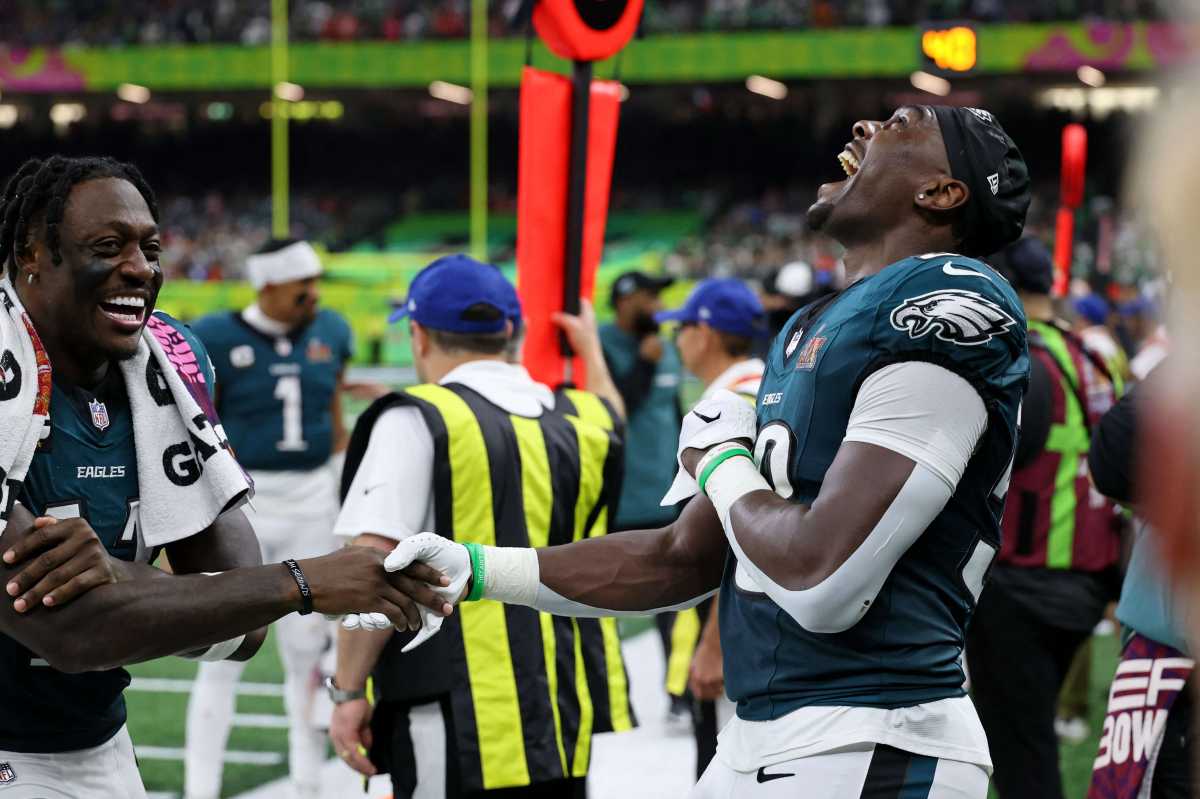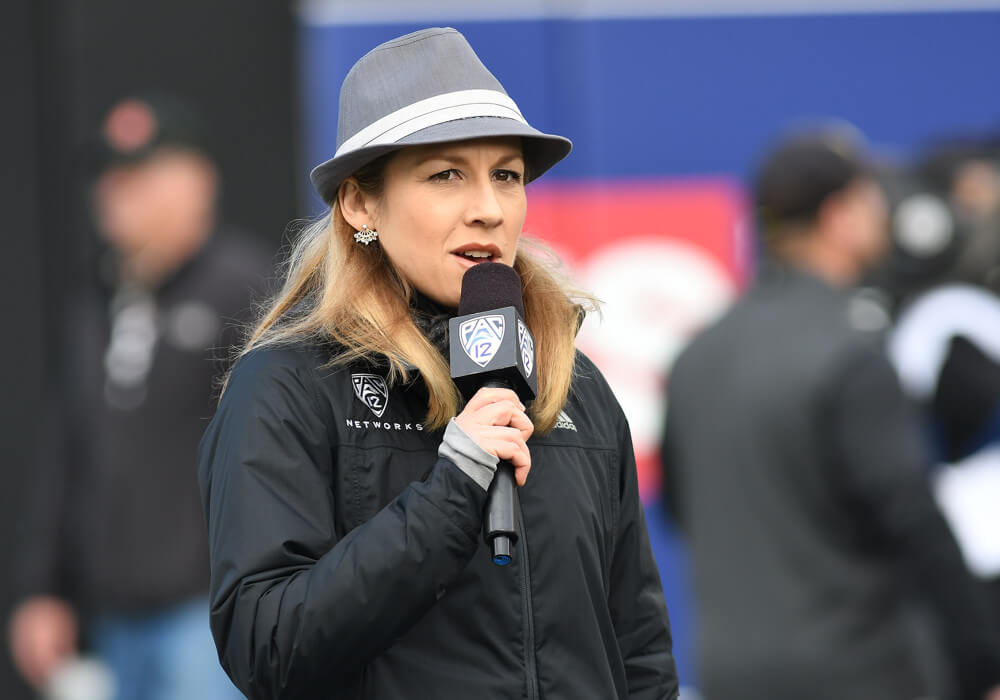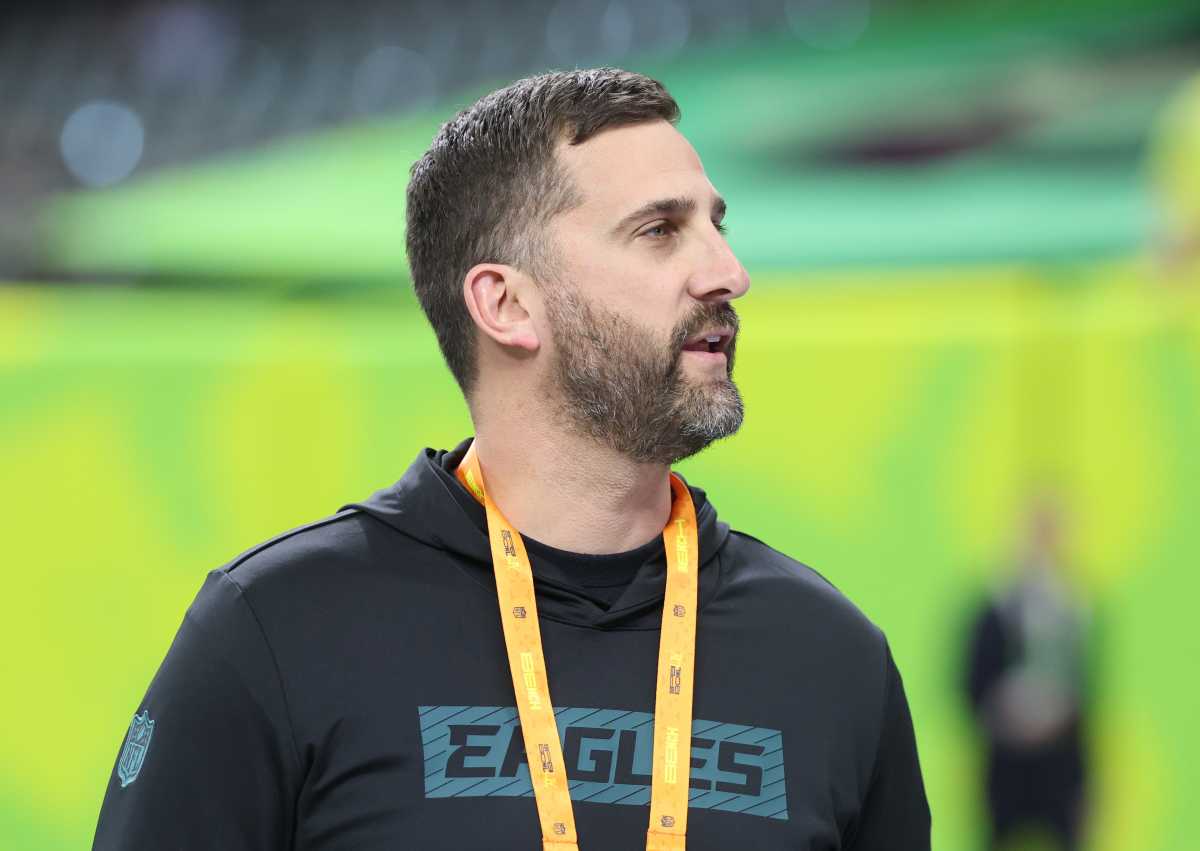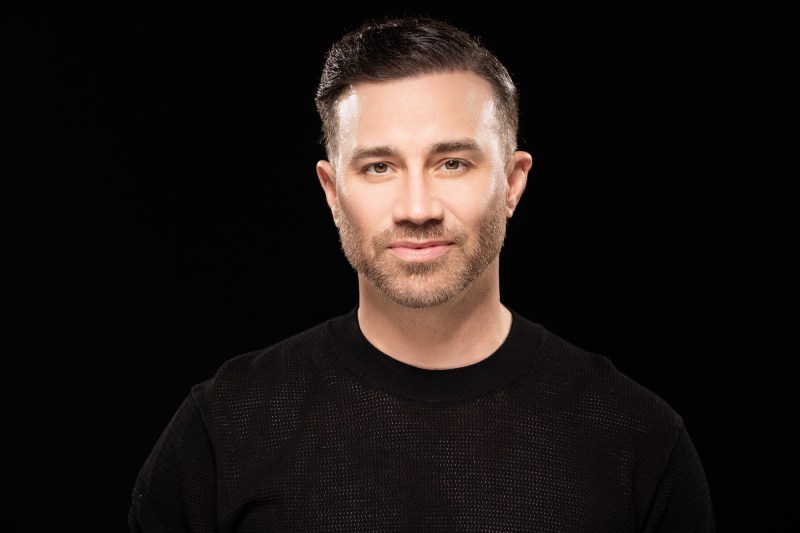Last week, there was an ongoing debate on social media about Philadelphia Eagles wide receiver Alshon Jeffery. What was the debate about exactly?
It was about if Jeffery should be considered a No. 1 wide receiver in the NFL. For anybody, who has covered the team or been a fan since 2000 knows that the Eagles have not had many No. 1 wide receivers.
Before signing Jeffery last offseason, you could say the last time the Eagles had a legit top wide receiver was back in 2004 with Terrell Owens. And we all know what happened that season, Philly’s offense got a tremendous boost and they went to the Super Bowl.
However, since Owens’ departure in 2005, the organization has been desperately trying to find that next top-tier wide receiver. Over the years, Eagles fans saw the likes of Kevin Curtis, DeSean Jackson, Jeremy Maclin, and Jordan Matthews being propped up as the team’s top receiving option.
Don’t get me wrong, all of these wide receivers were good in their own right within in the Eagles’ offense, but none of them were legitimate No. 1 wide receivers.
When you hear the term, No. 1 wide receiver, you automatically think of the best players at the position, who at least bring in 1,000 receiving yards and are game changers. Anytime they catch the ball, you know they have an opportunity to score a touchdown or make an impeccable play.
If we go by these standards, then Alshon Jeffery is a No. 1 wide receiver. Even though he might not be in the same conversation with Odell Beckham Jr., Antonio Brown, Julio Jones, A.J. Green, DeAndre Hopkins, or Tyreek Hill. He is still a player that defenses have to game plan for each week.
If you do not believe me, just look at the impact he made in Sunday’s game against the Tennessee Titans. Despite the loss, Jeffery had eight receptions (nine targets) for 105 yards and a touchdown.
He made life easier for everyone else on the field, including his quarterback Carson Wentz. The young quarterback was able to take chances on passes that only Jeffery could make. In addition to Wentz, having Jeffery back in the lineup opened up the middle of the field for tight end Zach Ertz.
Sunday’s game was also the first time an Eagles wide receiver had 100 receiving yards this season. The last time an Eagles wideout reached that mark was in Week 14 of last season, where Torrey Smith had six receptions for 100 yards and a touchdown against the Los Angeles Rams.
Staying with this theme, we as sports fans get caught up on numbers to try to prove our point, right or wrong. In the case of Jeffery, he’s not known to be a perennial 1,000-yard wide receiver.
He’s only had two seasons where he’s put up 1,000 receiving yards (2013, 2014). Should we diminish the impact that Alshon Jeffery has on the game because he does not put up gaudy numbers on a weekly basis? Not at all because he draws double teams and is a touchdown scorer.
Last season on a banged up shoulder, Jeffery had 57 receptions (120 targets) for 789 yards and nine touchdowns. Those nine touchdowns were the second-best total he posted through his seven-year NFL career.
Back in 2014, where he had over 1,000 receiving yards, the veteran wideout grabbed a career-high 10 touchdowns.
Those stats are pretty good for a second-round pick, who you could make the case was the best wide receiver to come out of the 2012 NFL Draft. Also up for consideration is Indianapolis Colts wide receiver T.Y. Hilton, who was drafted in the third round and has recorded four seasons of 1,000 plus receiving yards.
However, despite having more receiving yards than Alshon Jeffery, both wide receivers have 36 receiving touchdowns.
But that’s looking at where Jeffery stands at in the NFL. If you just want to leave at the Eagles and his stature on the depth chart, then it should not be a question that he is a No. 1 wide receiver.



